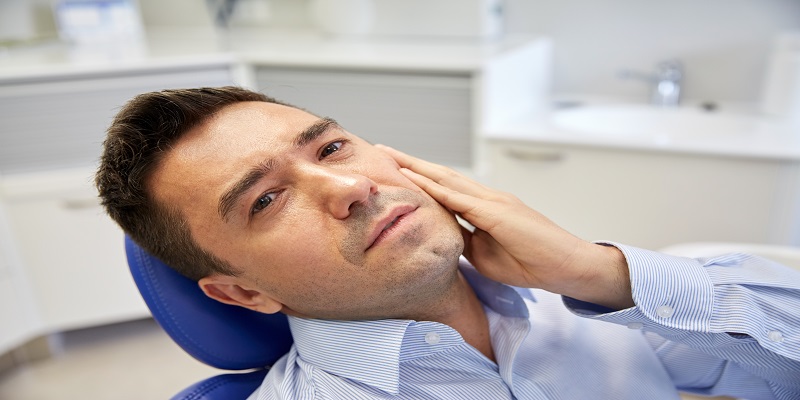
It is common for most people to grind or clench their teeth from time to time. In most cases, grinding of the teeth does not cause harm, but when it occurs on a regular basis, teeth can become damaged and additional oral health complications can arise.
Why does teeth grinding occur?
There are many reasons as to why people might grind their teeth. Factors such as stress, anxiety, crooked teeth, an abnormal bite or undiagnosed sleep disorders can play a role. Since it is the most common for people to grind their teeth when they are sleeping, the problem often goes unnoticed.
If you experience symptoms such as dull, constant headaches or a sore jaw when you wake up in the morning, you might be grinding your teeth at night. If you suspect that grinding may be an issue, talk to your dentist so they can examine you for signs and symptoms. Depending on the severity of the grinding, some fracturing, loosening, or loss of teeth can occur. It can also affect your jaw, putting you at risk for TMJ.
What can I do to stop grinding my teeth?
One thing your dentist can do to prevent you from grinding your teeth is to fit you for a mouth guard. The mouth guard is to be worn at night and is designed to protect your teeth from wear and tear. If stress is the reason why you are grinding your teeth, take appropriate measures to reduce stress and/or anxiety. Avoiding foods and drinks such as soda, alcohol, chocolate and coffee can also help because grinding can intensify if there is a lot of caffeine running through your body. Aside from eating, no chewing should be taking place throughout the day. Chewing on gum and objects such as pens or pencils can cause you to clench your jaw muscles and attribute to grinding your teeth at night.



